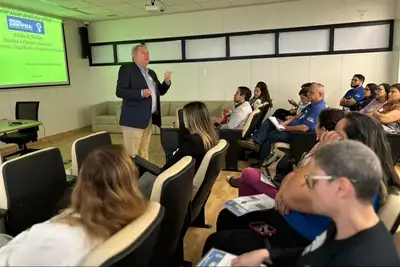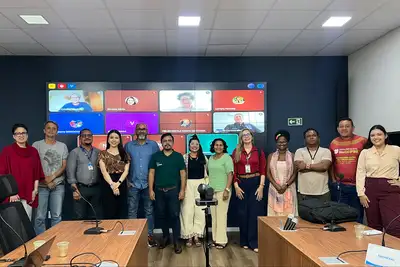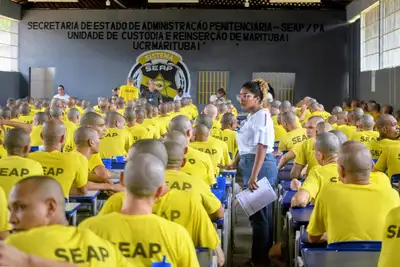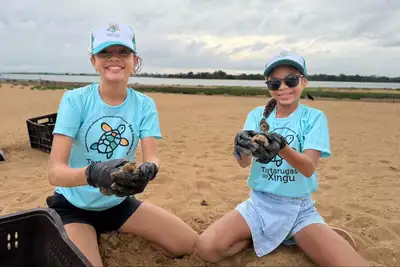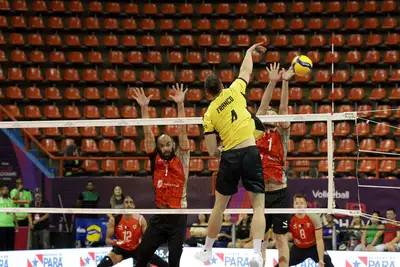Playful Eating Encourages Healthy Food Consumption at Abelardo Santos Hospital
Colorful and fun dishes help children adhere to the hospital menu and contribute to recovery as part of the therapeutic process
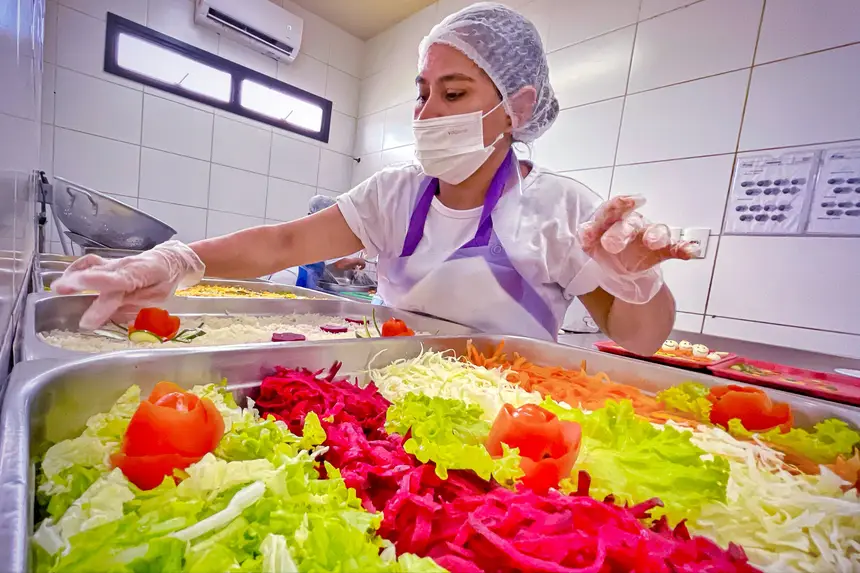
Since being admitted to the Dr. Abelardo Santos Regional Hospital (HRAS) in Icoaraci, a district of Belém, little Evelly Marques, eight years old, had difficulty eating due to lack of appetite. "She only nibbled at the food, and no matter how much we insisted or explained that she needed to eat, there was no one who could make her eat properly," said her mother, Edinalva Trindade, 34 years old.
Upon noticing the situation, the nutritionists at HRAS decided to innovate: they began preparing more attractive meals, with colorful and creative dishes designed to spark the interest not only of Evelly but also of other children facing the same problem. "Now she eats everything and even has fun while eating because the food comes in the shape of flowers and little animals," Edinalva said.
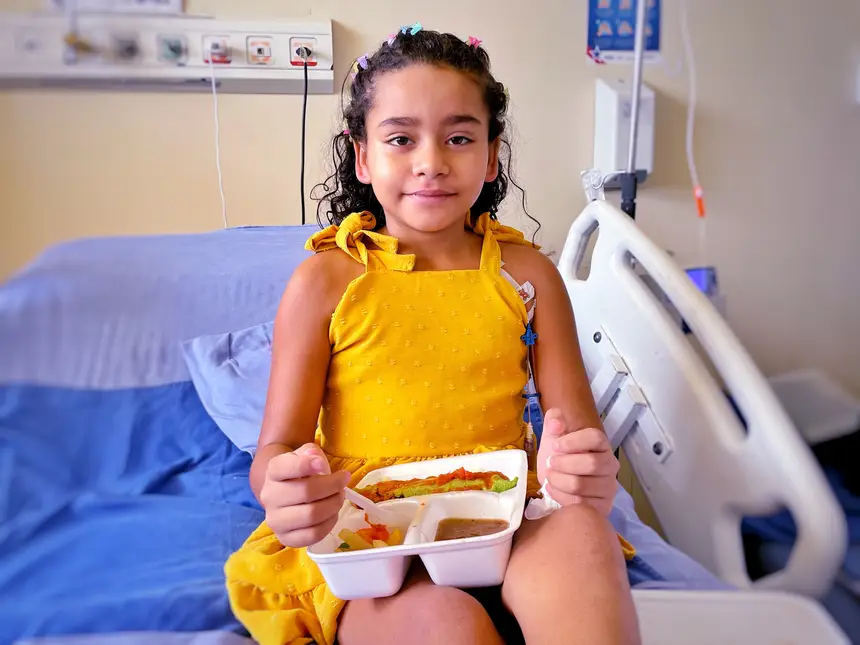
The dishes are prepared by the Nutrition and Dietetics Service (SND) of the unit and combine grains, proteins, vegetables, and fruits in a playful way to improve adherence to a healthy menu. According to the nutritionists, maintaining a good diet, especially during hospitalization, is essential for the body's functioning and recovery, which aids in treatment and discharge.
The strategy also worked for João Pedro, eight years old, who started eating well again after suffering an accident. "I really liked it on 'Children's Day' when I received colorful pancakes for lunch. It was the first time I ate like that, and it was delicious. I ate everything! Sometimes they bring little figures made with eggs and flowers in the salad. It looks very pretty and tasty," the boy said excitedly.
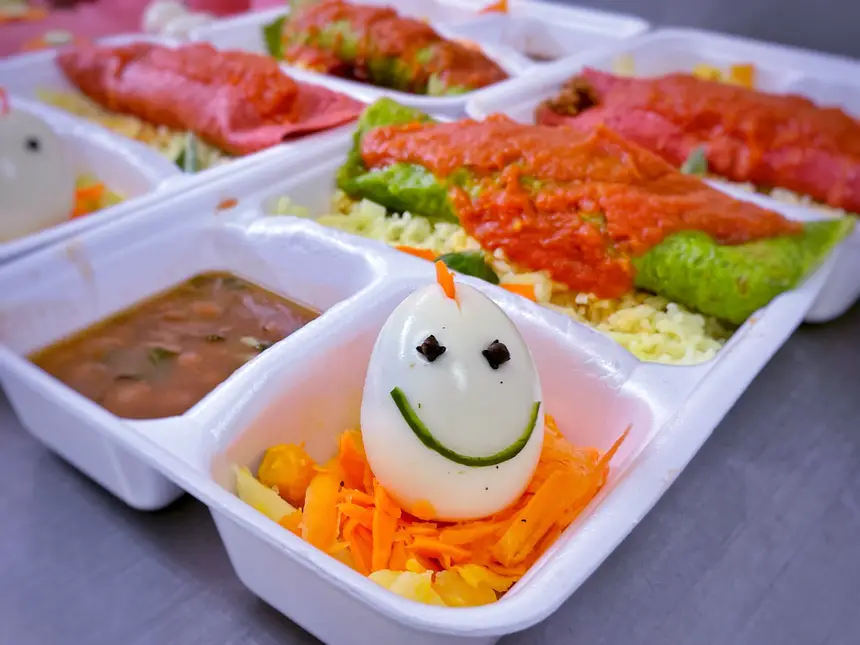
Abelardo Santos Hospital is the largest public unit of the government of Pará and has pediatric care as one of its specialties. The unit offers 24-hour emergency and urgent care aimed at this audience, operating in four areas: emergency room, surgery, clinical hospitalization, and Intensive Care Unit (ICU), in addition to welcoming patients in Intermediate Care Units (UCIn).
Production
The production of meals involves more than 80 professionals, including kitchen staff, cooks, kitchen assistants, as well as the assisting and production nutritionists who make up the SND. After the food is prepared, the team's creativity comes into play, transforming meals into playful works: figures made with eggs, animal shapes, and flowers made with vegetables, among others.
With everything ready, the kitchen staff take on the mission of delivering the meals to the children's beds. "I have been at Abelardo Santos Hospital for over two years, and I can say that there is a difference in children's acceptance when we adopt this strategy compared to the days when we just prepared and delivered the food without this special care," highlighted kitchen staff member Alessandro Matos.
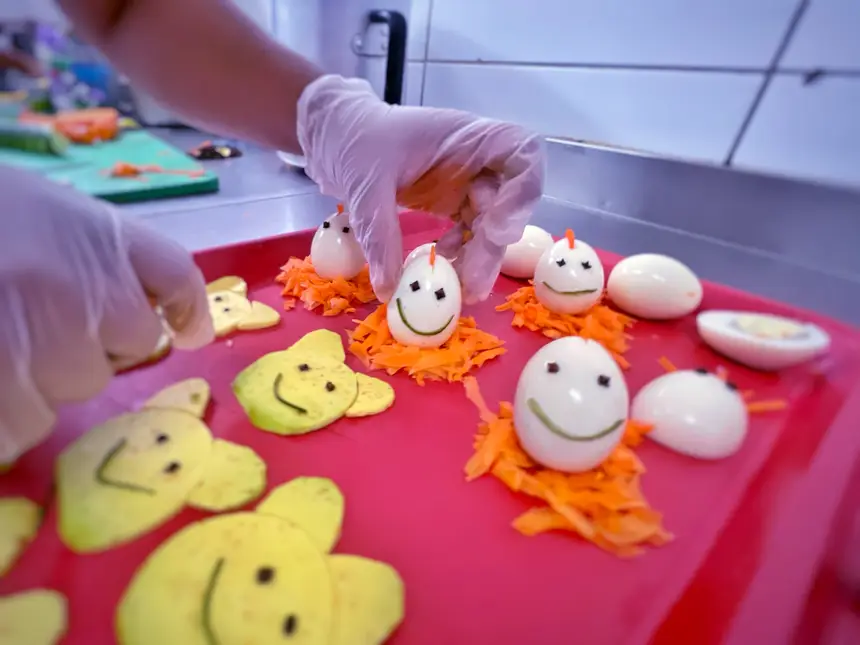
Nutritionist Brenda Silva explained that patients undergoing treatment often experience nutritional imbalances due to medications and changes in the hospital routine. "Adults eat because they understand the importance of nutrition, but for children, it is more difficult," she emphasized. Therefore, according to her, strategies that stimulate eating in a playful manner were adopted.
Brenda Silva adds: "With this initiative, we managed to reduce feelings of sadness, fear, and insecurity, which are common among children who do not yet fully understand the treatment process. The proposal is precisely to show that the pleasure of eating should not be forgotten in the hospital environment and that this moment can also serve to relieve tension," she stated.
This is one of the actions that places the patient at the center of care and integrates the strategic management of the Social Institute More Health (ISMS), responsible for the administration of HRAS, in partnership with the Health Department of Pará (Sespa). "We seek the effective and healthy recovery of these children, with care and, above all, safety," highlighted the coordinator of the multiprofessional team, Izabela Aquino.


